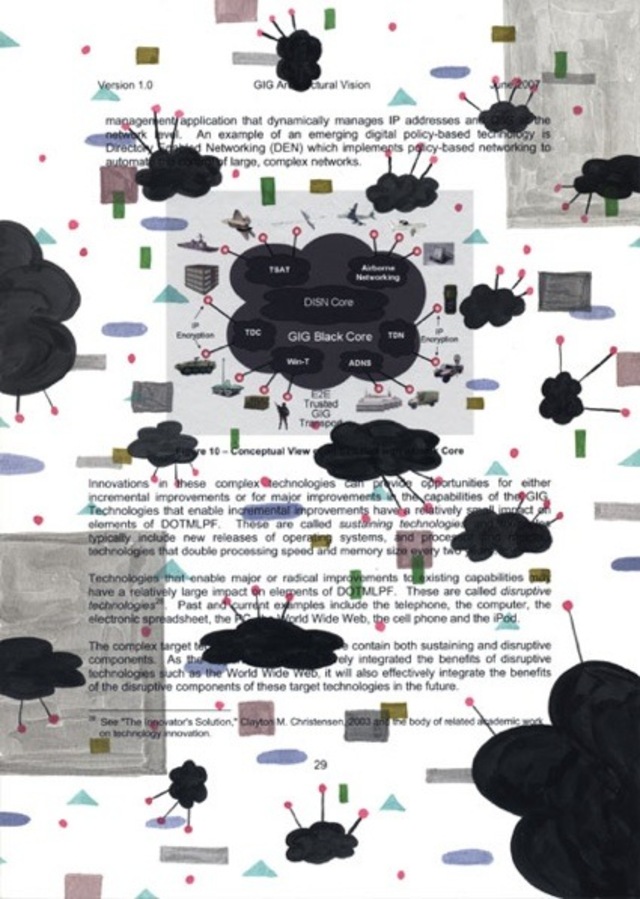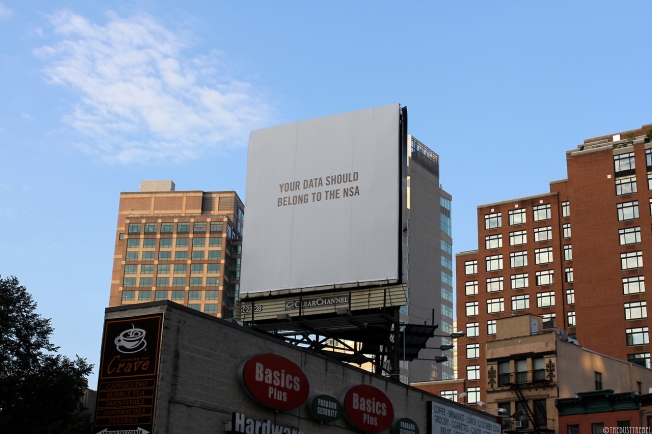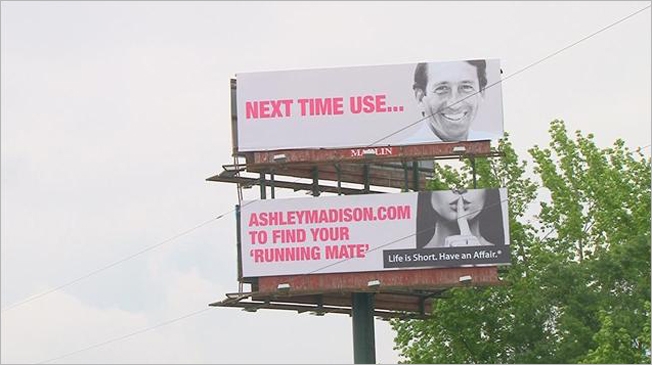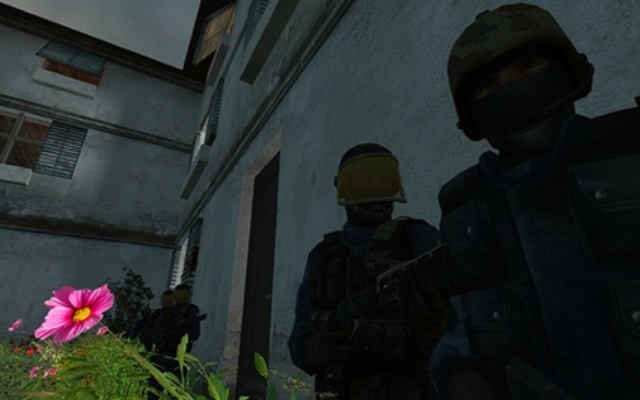Critical Exploits. Interrogating Infrastructure
Posted in: Uncategorized


Some of his projects involved outsourcing the production of a written constitution for the UK to China and having 1,000 dolls voice it, using the price of an African financial index to control lightning in a Berlin art center, testing certain hypotheses about social behaviour in a dinner party. And building an outdoors spiral staircase for cats. continue

Sarah Silverman is no stranger to controversy stemming from her politically charged PSAs. In her latest polarizing video, released last week, she bonds with Jesus Christ while they watch an NCIS marathon and discuss the state of women's reproductive rights in America.
The five-minute video, predictably lauded by the left and reviled by the right, has surpassed 800,000 YouTube views in its bid to promote "V to Shining V," a national pride day for women scheduled for Sept. 27.
Past progressive messages from the comic include "The Great Schlep," a Barack Obama-boosting clip that went mega-viral in 2008, and a 2012 video in which she offered to fool around with ultra-conservative tycoon Sheldon Alderson if he agreed to donate $100 million to Obama instead of Romney.
In a Q&A with AdFreak, Silverman vehemently denies the new spot is a rant against Christianity, and laments that there are haters who, in response to such videos, "call me 'Jew' and wish me murder and rape and it scares the shit out of me."
AdFreak: What was the genesis of the "Jesus" PSA?
Sarah Silverman: I noticed that women's rights were being very quietly chipped away, a lot like the voter suppression stuff. I think the Right knows that making abortion illegal in this country would be a bear of a task, so they're kind of just knocking out the headlights of our car, state by state, and then saying, "Oops, looks like you can't drive, you got a broken headlight."
Were you worried about the possible backlash, or perhaps looking forward to it, because that would build buzz?
I try not to read the angry tweets and threats. It's hard because there's so much of it. But if I let myself read it, I start to tremble and get really scared and I'm afraid it will make me stop doing this kind of stuff.
Are you pleased with the response it's gotten so far? Has anything about the response surprised you?
Yes, I am pleased. I'm perplexed when I see the Breitbart and Tea Party headlines like, "Jew Sarah Silverman Makes Video Blaspheming Jesus, Attacking Christians."
I'll never be surprised, but it's just frustrating because that is most certainly not what this video is. To me, it's information that people need to know, with comedy. I can respect people who believe that abortion is murder. If you believe that, then you are not going to want people to have abortions. It's the politicians and policy makers who are so comfortable pitching laws that take away women's access to affordable healthcare, contraception and, should she choose, abortion, that gross me out. I think it's far more Jesus-y to do what you believe is right than to do what lines your pockets with money and promised votes.
It's just odd to me that a people who are so against big government are so willing to mandate what a woman can and can't do with her own body. They're so protective of easy access to guns, and are making it so hard for a woman to get contraception.
The actor playing Jesus was awesome…
It's the awesome Michael Weatherly! He plays DiNozzo on NCIS—get the joke?
So, using Jesus makes a point about other groups that are using religion to make their points, right? Any groups in particular you had in mind?
Look, I just love the idea of Jesus. Genuinely. This awesome hippy that knew that if you don't deal with your shit, your shit will deal with you. Gosh, I wish the people who are shitty to others in his name would be brave enough to look inward just a little. This is not a rant against Christianity! It's a rant against those who can't get their heads around the fact that there are people with different beliefs than them and that has to be OK. I have friends and family with religion that I love and respect and adore and look up to. I don't have religion personally, but that's just my deal.
Was there dialogue you left out, a scene deemed too controversial?
You can't see it well, but in the end Jesus is wearing a T-shirt with one of those Jesus fish on it, but inside it says "Feminist." And there was a crude sex joke in there, but I didn't want it to be the thing people talked about. I didn't want to take away from the stuff I thought was more important.
What have you learned from doing social issues videos, and how do you gauge if they've been successful?
I just put it out there and move on … I want people to sign up at ladypartsjustice.org and march with me and hopefully hundreds of thousands of women and men in their home-state capitals on Sept. 27.
Did any of your political videos get a positive response that exceeded your expectations?
"The Great Schlep" was a big beautiful surprise.
Are you shocked by the amount of hate tossed your way because of these ads? Are haters on YouTube like hecklers at a comedy club?
No, because you see hecklers. You can look right at them, right in the eye, and no matter how shitty they are, they are right in front of me and the whole audience, and they have to take responsibility for any shitty stupid thing they say. On the Internet their identity is often shrouded. Their avatars always seem to be some scary cyber monster or some masked and armed animated killer and they call me "Jew" and wish me murder and rape and it scares the shit out of me. That's why I try not to look. I don't wanna be scared out of doing junk like this. Especially not by the faceless boogymen that spew threats with no accountability. Pussies, I think.
Look, this couldn't be worse for my career—trust me, I get no money for this, no paid work comes from alienating potential movie and TV consumers. I do it because I'm like the scorpion from The Scorpion and the Frog. I may drown in the process, but I can't help it. It's my nature.
What recent issue-oriented ads do you respect? Any campaigns come to mind that make you say, "I wish I'd done that"?
Not really. There are issue-oriented commercials? The one for Cheerios when the kid says, "When we have Cheerios it's kind of like we're having breakfast with Nana" makes me cry like a baby every time.
What's your favorite ad of all time, or your favorite ad character?
There are so many great ads out there—some of the funniest stuff. I love the Skittles commercial where this girl thinks this man is so lucky because everything he touches turn to Skittles, and then he turns and is like, "I can't hold my own grandson!" Or something super serious. I can't remember exactly, but I loved it. And there was an ad for Imodium or something where this guy is in a hot tub with all these hot chicks and his friend walks by and is like, "Hey Jeff, how's your diarrhea?" I also like the ad with the awesome guy in a Speedo with a drink, and the only audio is, I think, a David Byrne song. I'm not explaining it well, but it's pretty perfect.
![]()




Unseen are also the memories of violence, control and conflicts that are lurking in overcast landscapes and dark city corners. There’s always something in his images that seem to conceit and conspire. At least that’s what the viewer suspects because Doherty is a master of making them paranoid continue

Mysterious billboards have appeared in New York and San Francisco bearing the message that "Your data should belong to the NSA." As Gothamist astutely points out, it already does, regardless of any shoulds or should-nots. Animal New York did a little sleuthing and discovered this is some kind of teaser campaign for a company that will be revealed this week. A second billboard in New York reads, "The Internet should be regulated." ("For now, I am respecting the creative campaign and reserving comment on who the advertiser is," a Clear Channel rep told Animal.) So, two questions: Who's the advertiser? And don't they know needling the NSA is a bad idea? Photo via The Dusty Rebel.
UPDATE: The campaign is by BitTorrent, according to Gizmodo. Images below.



![]()

If you're a federal employee with some time on your hands, Vibrators.com has something they'd like to put in those hands—for free!
That's right, the e-commerce hub that bills itself as "the easiest way to find the perfect vibrator" is currently giving away 200 free vibrators a day to help idle workers go from being furloughed to dil-doughed. And demand is brisk, with the first batch snatched up by midday today, though another 200 will be made available each day until the crisis ends. Just use the promo code "shutdown" to unlock the free offer, which the Vibrators.com crew admit is a bit of a security flaw: "Order one even though you are not a furloughed federal employee and we won't really know, but Karma will get you."
Unfortunately, the 200-vibrator limit has to be enforced because "more than that and it will slow down our warehouse and prevent timely delivery of our paying customers' orders." You can almost hear the frenzied commotion of the vibrator warehouse, where forklift drivers are working late into the night, loading a fleet of tractor trailers with crate after crate of the undulating orifice tinglers that are keeping America running.
Via Philly.com.
![]()


A jokey-yet-serious campaign called Bribe the Senate, intended to get the U.S. Senate to at least discuss the idea of mandatory background checks on gun purchases, has hit a legal snag and its organizers are rethinking their approach—lest they end up in prison.
Four creatives at Goodby, Silverstein & Partners came up with the project (a personal one, not an agency endeavor), which was designed to raise money to offset donations from the gun lobby to six senators who could provide the swing votes to consider legislation on the topic. At midnight Thursday—100 days after the Senate voted to keep background checks from even being discussed—the campaign's website will count down to zero, at which point it was supposed to start collecting donations. Now, that won't happen.
"Honestly, we started this whole thing with the intent to fundraise for the bribes," says Simon Bruyn, one of the creatives. "But the lawyers were very adamant that this was go-to-jail illegal. Not just for us, but for anybody who donated. So we had to change our approach late in the game."
Instead, the site will simply direct tweets to the six senators and ask them to revisit their stance on the issue. Not so much as a bitcoin will change hands.
"We get it. Bribes are bad. You can't pay a politician to change their vote," says Emil Tiismann, another of the site's creators. "Next time we will form a proper political lobbying organization so that we can collect unlimited cash in order to have a meaningful political conversation with our elected officials where we strongly express our opinions."
Tiismann adds: "Please don't send us to jail for this. We'd hate to have to share a cell with a mentally ill killer who bought his murder weapon at a gun show without a background check."
Jacob Sempler and Andrew Livingston were the other two creatives who built the campaign. Check out its appeal video below.
![]()

Pulse-pounding thriller music and dramatic editing capture all the "excitement" of cable-access city-council broadcasts in Whitehorse, Yukon Territory, in this tongue-in-cheek (but 100 percent real) promo. The commercial is nearing 80,000 YouTube views in a week. That's more than three times the town's population. High-impact scenes from the Monday-night broadcasts on Community Cable 9 include: a finger tapping a microphone to make sure it works; people writing on sheets of paper; pitchers of ice water sitting on tabletops; middle-aged, graying counselors entering the chamber and, ultimately, sitting down. The spot is so faux-intense, I kept expecting Peter Stormare to burst in … and pour himself a glass of water (though if he ever finds himself on this particular show, he should fire his agent). The highlight is Mayor Dan Curtis announcing that an additional $15,000 was made available to the local museum. Holy cow, what's next, a non-binding referendum on curbside recycling? Tune in Monday to find out, same Whitehorse City Council time, same Whitehorse City Council channel!
![]()

Here's something you don't see every day: a stripping politician. No, it's not Anthony Weiner. It's an ad for Represent.us, a new organization created late last year to fight the influence of money in politics. Josh Silver, the founder, is betting that a provocative ad—with a not-too-subtle metaphor for how politics works these days—can help him create a grassroots movement to pressure policymakers to enact sweeping reforms. "We need to get people's attention," he said. "We wanted an ad that cuts to the truisms."
This one may do it. It opens with an aide telling a white-haired, well-coiffed Senator, "We need these guys. They have deep pockets." Soon the Senator is stripped down to red-white-and-blue briefs, while people stuff wads of cash into his pants. Hackett Creative created the ad, offering to produce it pro bono at cost because he felt the problem of money in politics is "the most important in the nation," Randy Hackett told Silver. He has created advertising for brands including IBM, Johnson & Johnson and American Express and directed spots for Delta Airlines, ESPN and Motel 6. The ad for Represent.us was produced for less than $25,000. It will run online and move to Washington, D.C., cable next week.
![]()



AshleyMadison.com doesn't get political unless there's a sex scandal to exploit, so of course they jumped all over Mark Sanford. Wait, that came out wrong. The extramarital dating website is endorsing Sanford, the former governor now running for Congress, with a billboard in his home state of South Carolina that says "Next time use AshleyMadison.com to find your 'running mate.' " That's a reference to his "Appalachian Trail" excuse for why he went missing that time for six days. I don't see how AshleyMadison would have helped him since a) his other woman lived on another continent and he still got caught, and b) Sanford is kind of an idiot. But AshleyMadison's job is sleaze, not logic. Not to be outdone, Larry Flynt has also endorsed Sanford, hailing him as "America's great sex pioneer."
![]()


